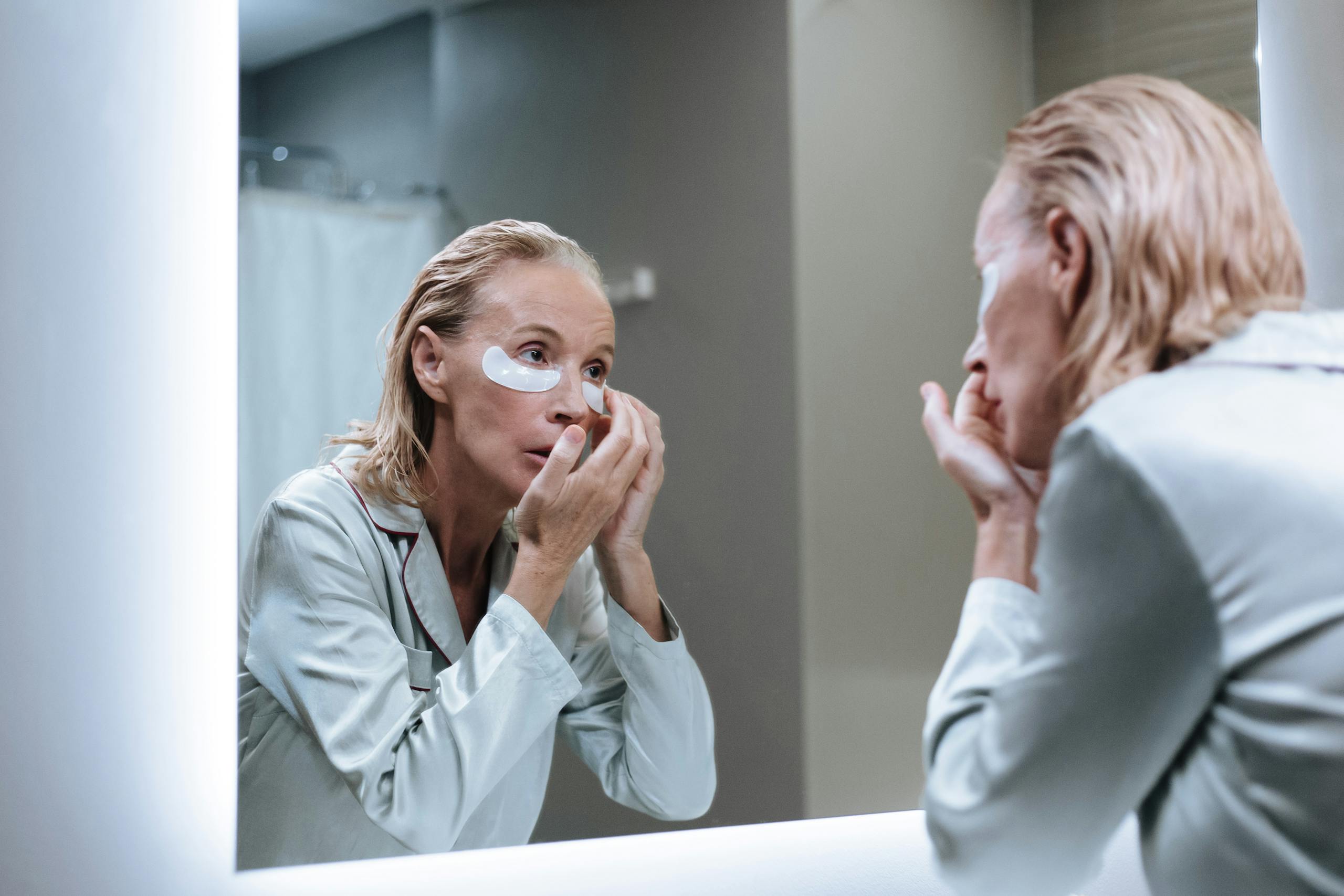Early Signs of Cellular Aging and What to Look For
Have you ever looked in the mirror and wondered, am I aging faster than I should?What if I told you that the first signs of aging don’t show up on your skin or in your gray hairs?
Aging is often thought of as something we notice only in the mirror—a few wrinkles, gray hairs, or a little extra stiffness when getting out of bed.
But what if the most significant signs of aging are happening long before they become visible? What if the real story starts deep within, at the cellular level?
Cellular aging happens deep within your body, quietly affecting your energy, health, and overall vitality. But here’s the good news: recognizing these early signs can empower you to take proactive steps toward a healthier, more vibrant future.
These early shifts in your body’s inner workings could hold the key to understanding and even slowing down the aging process. Let’s dive into the fascinating world of cellular aging and uncover what our body might already be telling us.
In this article, we’ll explore early signs of cellular aging and what to look for the significant ways our cells might be signaling aging and uncover practical tips to maintain youthful energy and resilience at every stage of life.
Keep reading because what you’re about to learn might just change the way you look at aging!
What is Cellular Aging?
At its core, cellular aging refers to the gradual decline in our cells’ ability to function optimally. It’s influenced by various factors, including genetic predispositions, environmental stressors, and lifestyle choices.
Think of your cells as tiny machines. Over time, wear and tear from things like oxidative stress, inflammation, and DNA damage can cause these machines to break down, leading to aging at a microscopic level.
But don’t worry—these processes don’t happen overnight. They often start with subtle signs that you can learn to recognize.
Early Signs to Watch For
1. Fatigue and Low Energy Levels
One of the first indicators of cellular aging is fatigue and low energy levels.
You know that feeling when you wake up after a full night’s sleep, but it still feels like you could use a few more hours in bed? That lingering fatigue might not just be about a busy schedule or a stressful day.
It could be a sign that your mitochondria—the energy powerhouses of your cells—are struggling to keep up. As we age, our mitochondria become less efficient at producing energy.
This can lead to a general sense of tiredness that’s hard to shake. If this sounds familiar, it’s worth looking at how your daily habits, like nutrition and sleep, might be affecting your energy levels at the cellular level.
2. Slower Recovery Times
Remember when you could push yourself at the gym or bounce back from a small injury like it was nothing?
If you’re noticing that it’s taking longer to recover from workouts, cuts, or even the occasional cold, it might be an early sign of cellular aging. This happens because the body’s repair mechanisms—including the production of proteins and enzymes crucial for healing—start to slow down.
It’s your body’s way of saying it needs a little extra help, like better rest and the right nutrients, to keep functioning well.
3. Changes in Skin Texture and Elasticity
Our skin often tells the first visible story of aging, but the changes start long before we notice fine lines or wrinkles. Dullness, dryness, or a loss of that youthful bounce can signal a decline in collagen and elastin production.
These proteins are the building blocks of firm, healthy skin, and they naturally decrease as we age.
Add in factors like sun exposure, pollution, and oxidative stress, and the process can speed up.
The good news? Staying hydrated, wearing sunscreen, and eating antioxidant-rich foods can make a world of difference in supporting your skin’s health.
4. Cognitive Fog
Have you ever walked into a room and forgotten why you were there? Or struggled to focus on a task that used to feel easy? These moments of cognitive fog can be unsettling, but they’re also a common early sign of cellular aging.
As cells in the brain experience stress from inflammation or reduced efficiency in neuron communication, it can impact memory and focus.
This doesn’t mean you’re losing your edge—it’s simply a reminder to prioritize brain health with activities that stimulate your mind, like reading, puzzles, or even learning something new.
5. Increased Sensitivity to Stress
Stress is a part of life, but have you noticed that it’s hitting you harder than it used to? Aging cells can’t adapt to stress as efficiently, which means your body might respond more intensely to the same triggers.
Whether it’s emotional stress from a hectic day or physical stress from a tough workout, these heightened reactions can leave you feeling drained.
Managing stress through mindfulness, deep breathing, or even taking regular breaks throughout the day can help ease the burden on your cells.
6. Weaker Immune Function
If you’ve been catching more colds or find yourself feeling under the weather more often, it could be a sign that your immune system is slowing down.
Aging affects the cells that keep us healthy, like white blood cells, which are essential for fighting off infections. Telomeres, the protective caps at the ends of your DNA, play a big role here.
As they shorten over time, your body’s ability to repair and protect itself decreases.
Supporting your immune system with nutrient-rich foods, regular exercise, and plenty of sleep can help keep it strong.
How to Combat Cellular Aging
The good news is that while cellular aging is natural, you have significant control over how quickly it progresses. Here are some science-backed strategies to keep your cells functioning optimally:
1. Prioritize Nutrition
A diet rich in antioxidants, healthy fats, lean proteins, and fiber can protect your cells from oxidative stress and inflammation. Foods like berries, nuts, leafy greens, and fatty fish are excellent choices.
And let’s not forget the importance of staying consistent with healthy eating—your cells thrive on good habits built over time.
2. Stay Active
Exercise isn’t just about keeping your body in shape—it’s also about keeping your cells energized and efficient.
Regular physical activity improves and boosts mitochondrial function, reduces inflammation, and promotes cellular repair.
Whether it’s a brisk walk, a mix of strength training, cardiovascular activity, or flexibility exercises, finding activities you enjoy can make staying active a joy rather than a chore.
3. Manage Stress
We’ve all heard that stress is bad for us, but it’s especially hard on your cells. Chronic stress releases cortisol, which can accelerate aging.
Incorporating mindfulness practices like meditation, journaling, deep breathing or even spending time in nature can help lower stress levels and support cellular health and your overall well-being.
4. Get Quality Sleep
Sleep is when your body goes into repair mode. Without enough rest, your cells don’t get the time they need to rejuvenate.
Aim for 7-9 hours of uninterrupted sleep each night to give your cells the time they need to rejuvenate.
Creating a calming bedtime routine and sticking to a regular sleep schedule can make all the difference.
5. Stay Hydrated
Water is essential for all cellular functions. Dehydration can impair the body’s ability to remove toxins and transport nutrients, both of which are critical for healthy aging.
Water is essential for all cellular functions. Dehydration can impair your body’s ability to remove toxins and transport nutrients, both of which are critical for healthy aging. Make it a habit to keep a water bottle nearby and sip throughout the day.
6. Consider Supplements
Sometimes, even the best diet needs a little extra support. Supplements like CoQ10, omega-3 fatty acids, and vitamin D can help combat oxidative damage and support mitochondrial function.
Always consult with a healthcare provider to find what works best for you.
Final Thoughts
Cellular aging may sound complex, but it’s essentially your body’s way of showing that it’s time for some extra care.
By recognizing the early signs and taking proactive steps, you can maintain your vitality and slow down the aging process.
Remember, aging is inevitable, but how you age is largely up to you. Let’s embrace the journey together and make it as vibrant and energetic as possible. Your cells will thank you!







